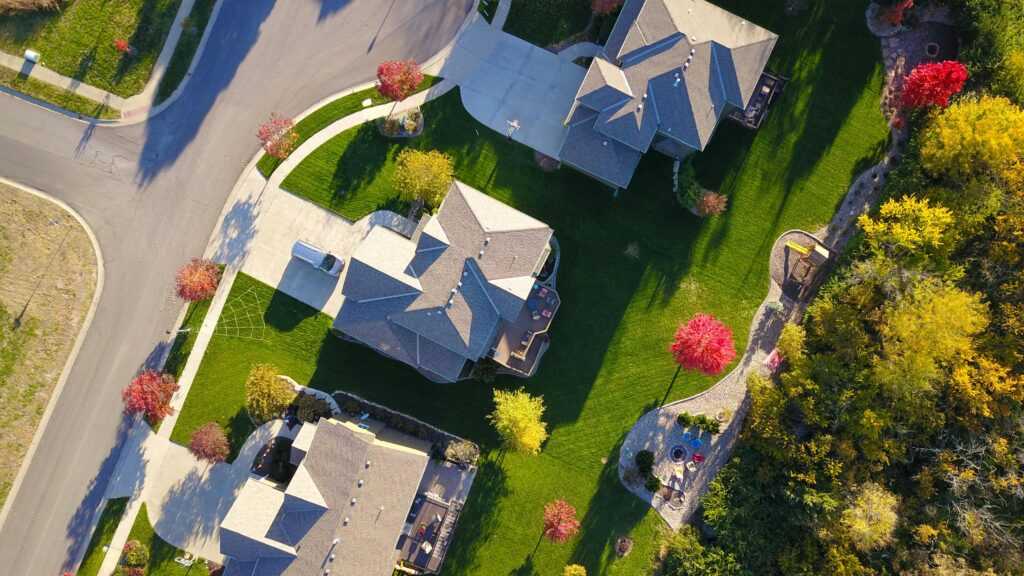Blockchain is doing more than reshaping finance; it’s rewriting how people buy homes. Smart contracts are introducing automation, transparency and a sense of trust to an industry that’s long been buried under paperwork.
Buying a home once meant endless signatures, appointments and waiting for approvals that never seemed to end. But the digital age is catching up to real estate and blockchain technology quietly turns property buying into a faster, more innovative process. In this evolving market, even a phrase like Solana to USD now links worlds once considered separate, cryptocurrency trading and home ownership, as more buyers explore tokenized transactions that blend both.
Why blockchain matters
Imagine owning a share of a beachfront property in Bali without flying there or dealing with ten layers of paperwork. Tokenization makes this possible. By converting a property’s value into digital tokens recorded on the blockchain, ownership can be divided, verified and traded as easily as digital currency.
According to Binance Research, the combined on-chain real-world asset (RWA) value (excluding stablecoins) has surpassed US$12 billion and tokenized real estate has been among the leading verticals. This growing scale makes fractional ownership feasible and lowers entry barriers for ordinary investors.
Each token may represent a verifiable stake on the blockchain, but liquidity, legal status and regulation are still catching up.
Smart contracts drive secure and automatic exchanges between buyers and sellers in this environment.
Rather than looking to brokers, banks and escrow agents, intelligent contracts make transactions once agreed-upon conditions are encountered, like verification, payment or conveyance of title, thereby mitigating fraud and unwarranted delays.
Smart contracts and the first-time buyer
To newcomers in the homebuyer market, blockchain simplifies the process of a stressful milestone in life. A smart contract deposits money in a safe deposit and releases it by providing responsibilities requiring the seller to meet certain conditions, like law verification or clearance.
Once finalized, the agreement automatically grants ownership tokens to the purchaser. There are no required bank clearings or paper documents couriered; your whole transaction process is digital and real-time, with each step transacted and stored on-chain.
Smart contracts rely upon oracles, which connect blockchain logic to external data such as appraisals or registry affirmation. Binance Research stresses that oracles “guarantee that the on-chain representations properly replicate the off-chain, real-world data.” They bridge the physical and digital worlds and make blockchain transactions reliable in real estate markets.
By verifying Rationally and reducing human error, blockchain transforms first-time purchases from transparent legal obstacles to a clear, data-oriented one.
Market insights and global momentum
Blockchain’s real estate momentum doesn’t happen in isolation. Larger crypto trends are propelling the same movement toward tokenized assets.
Cryptocurrency market capitalization increased by 13.3 percent in July 2025, with Bitcoin, rising institutional demand and more regulated stablecoin regulation contributing to that growth (Binance Research, 26), Monthly Market Insights (August 2025).
This renewed optimism has encouraged developers and investors to apply blockchain infrastructure to physical asset management, including residential housing and land registries.
Yet, markets remain volatile. Binance Research recently noted, “The total crypto market cap lost more than US$300B this week, falling to US$3.7T towards the end. Riskier assets like altcoins fell the most, with Ethereum falling over 13% and Solana by 20%. BNB fell only by ~3% while BTC slipped ~6%.”
These highs and lows point to the fact that blockchain adoption in real estate still flows in sync with broader crypto cycles despite the increasing maturity of real-world use cases.
On the other hand, infrastructural developments such as Plume, a modular blockchain designed to be real-world asset compliant, usher in regulated property tokenization. These developments indicate blockchain’s maturity from speculative markets to real-world systems for secure asset storage.
Challenges and real-world barriers
Despite advances, technical and legal issues remain. Property law is still attached to jurisdiction, so a blockchain entry in Singapore may not be legal in Spain. Governments are still behind and dualistic digital and paper-based models are still the case.
Verification still constitutes a primary hurdle: anti-fraud measures and checks of identity may be incompatible with blockchain’s decentralization. For reliability, oracles have to remain tamper-proof; a breached data feed may initiate WithError contract activation.
Binance Research warns that, as much as tokenization is gaining acceptance, “there is still room for improvement in terms of laws and regulations and user identity restrictions.” Technology is in place; law and order must harmonize.
The smarter future of buying homes
Purchasing a home through code may sound futuristic, but it’s already underway in pilot projects across Europe, Asia and the Middle East. Tokenized real estate gives first-time buyers a realistic path to ownership, perhaps through fractional participation before complete purchase.
Deals that once took weeks could close in minutes, verified and settled without intermediaries.
Fractional ownership could be the new face of access in the near future: a Mexican teacher or a designer in Kenya would own a fraction of a place in Tokyo or Lisbon and have access to stable real estate markets that would otherwise be inaccessible. Using blockchain, the ledger of property in the world becomes borderless.
Based on the analysis from Binance Research, this transformation is more than hype. It fundamentally reshapes how ownership, verification and trust operate in the digital economy.
The blockchain property era isn’t just about efficiency but inclusion. For first-time buyers, it could transform home ownership from red tape into a genuine opportunity.


 Deborahn McKenneyster, the founder of Residence Resale Tactics, is a dynamic leader with a deep-rooted passion for the real estate market. With years of experience in the industry, Deborahn has cultivated a reputation for her strategic acumen and innovative approach to property resale. Her journey began as a real estate agent, where she quickly recognized the need for a platform that provides actionable insights and practical strategies for agents, investors, and homeowners alike. Deborahn’s vision was to create a resource that not only offers the latest market news but also equips users with the tools to navigate complex transactions and achieve success in a competitive field.
Under her leadership, Residence Resale Tactics has become a trusted source of information for real estate professionals, delivering expert guidance on everything from market trends and investment strategies to creative marketing techniques. Deborahn's commitment to empowering others is evident in her dedication to curating content that is both timely and relevant, helping clients enhance their knowledge and make informed decisions. Her innovative mindset and passion for real estate continue to drive the platform forward.
Deborahn McKenneyster, the founder of Residence Resale Tactics, is a dynamic leader with a deep-rooted passion for the real estate market. With years of experience in the industry, Deborahn has cultivated a reputation for her strategic acumen and innovative approach to property resale. Her journey began as a real estate agent, where she quickly recognized the need for a platform that provides actionable insights and practical strategies for agents, investors, and homeowners alike. Deborahn’s vision was to create a resource that not only offers the latest market news but also equips users with the tools to navigate complex transactions and achieve success in a competitive field.
Under her leadership, Residence Resale Tactics has become a trusted source of information for real estate professionals, delivering expert guidance on everything from market trends and investment strategies to creative marketing techniques. Deborahn's commitment to empowering others is evident in her dedication to curating content that is both timely and relevant, helping clients enhance their knowledge and make informed decisions. Her innovative mindset and passion for real estate continue to drive the platform forward.